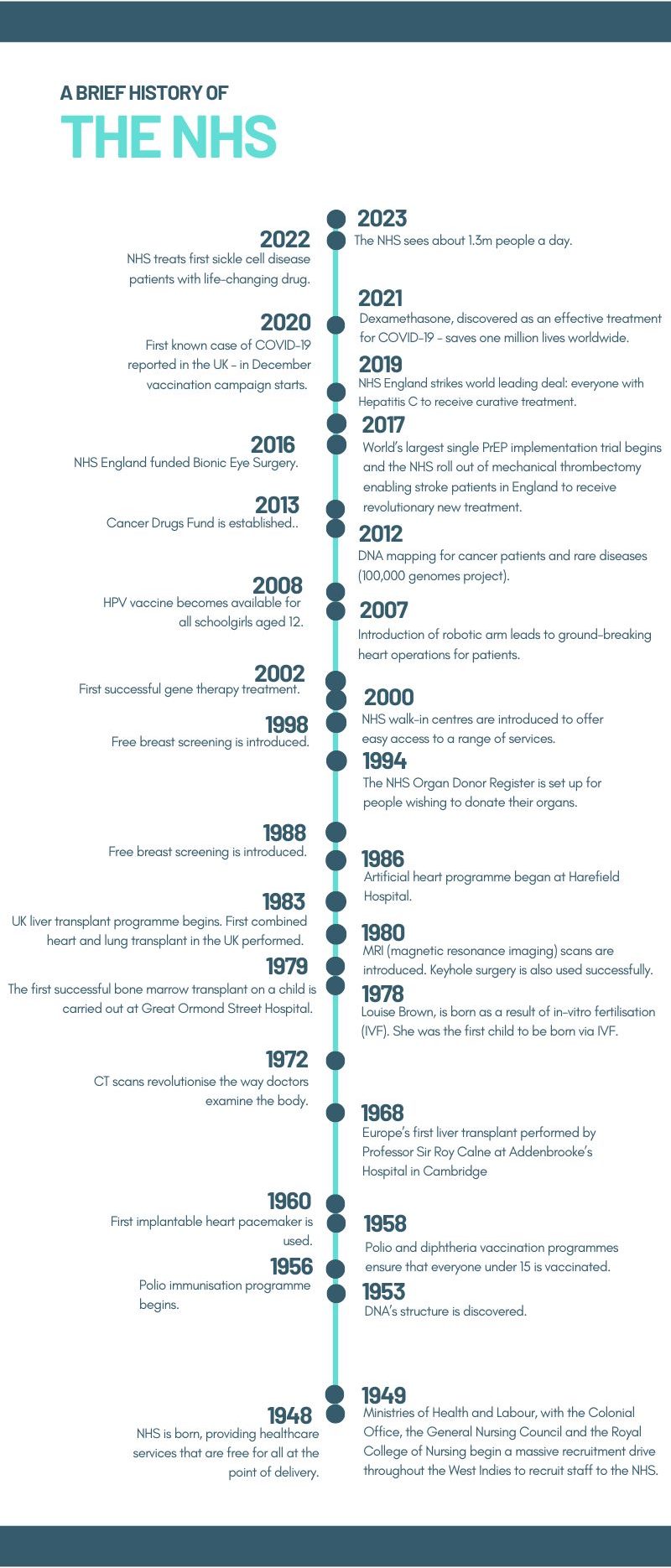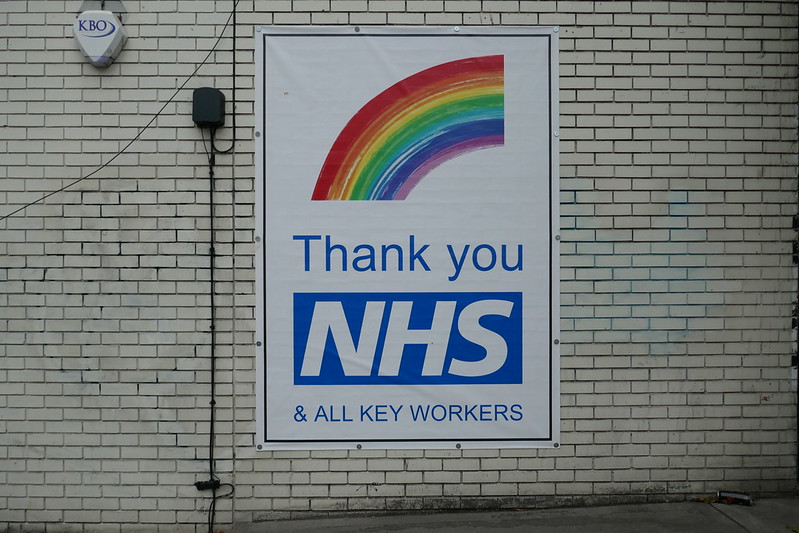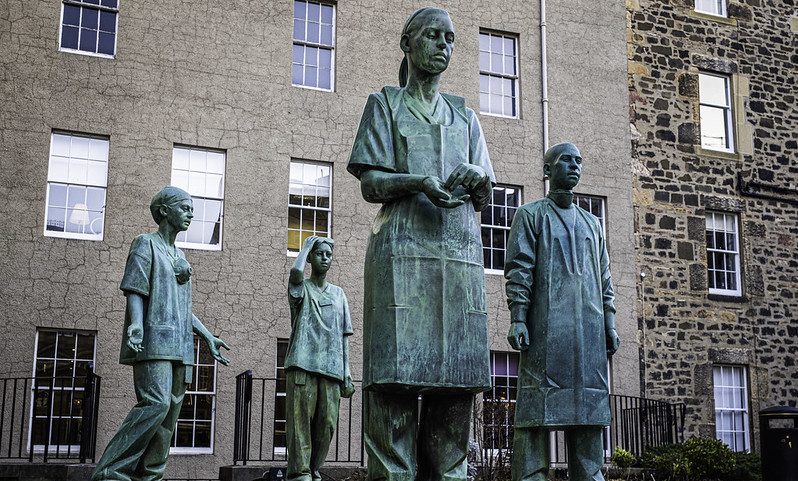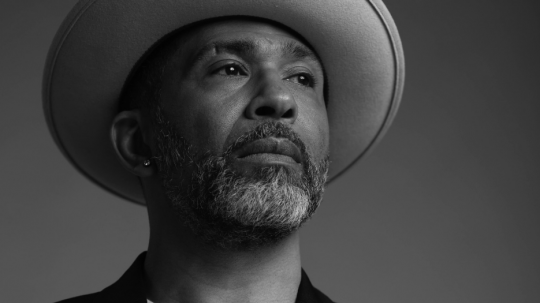Today marks 75 years of the National Health Service (NHS), which delivers healthcare to UK residents, free at the point of delivery. Amid adversity, crises and pandemics, the NHS remains a service that protects the rights of the public to healthcare – treating approximately 1.3 million people a day.
The NHS has an impact on all of us at some point in our lives. When it was founded in 1948, it was the first universal health system to be available to all, free at the point of delivery.
From the day it launched, the service relied on staff from across the world – ranging from the Windrush Generation of 1948 to today’s workforce, represented by over 200 nationalities.
The right to health and to healthcare is protected under Article 12 of the United Nations International Covenant on Economic, Social and Cultural Rights (ICESCR).
The right to health is also protected via Article 3 of the European Convention on Human Rights (ECHR) – protection against torture and inhuman or degrading treatment – and the Human Rights Act (HRA).
75 years of protecting the right to healthcare

However, the service has faced adversity throughout the 75 years it has been in operation and continues to face many challenges now: in terms of government cuts, disputes over pay and working conditions and issues of privatisation. According to the NHS, nine in ten people agree that healthcare should be free of charge, and more than four in five agree that care should be available to everyone.
Is the NHS being privatised?
The government has denied that the NHS is being privatised, highlighting on numerous occasions that healthcare on the NHS remains free at the point of use.
However, the Health and Social Care Act of 2012 introduced a network of Clinical Commissioning Groups and required them to put health services out to competitive tender, allowing private sector providers to bid for contracts.
Projections indicate the NHS will need £4bn more to undo real-term hits
Despite NHS funding being 11.1% higher now than in 2019–20, the NHS is, on average, experiencing less budget growth. According to the Institute for Fiscal Studies, the NHS would require around £4bn of additional funding in 2024–25 to undo the remainder of the real-term hits to NHS spending plans.
Warnings: “Change must happen for NHS to see its 80th birthday”
Professor Philip Banfield, chair of the British Medical Association, warned ahead of today’s anniversary in an interview with the Guardian that the NHS is so fragile it may not survive to see its 80th birthday.
Banfield stated: “This government has to demonstrate that it is not setting out to destroy the NHS, which it is failing to do at this point in time,” he said. “It is a very common comment that I hear, from both doctors and patients, that this government is consciously running the NHS down. [And] if you run it down far enough, it’s going to lead to destruction.
He continued: “You’ll struggle to find someone [among doctors] on the frontline who thinks otherwise, because that’s what it feels like.”
Banfield also described the funding of the NHS as a ‘conscious political decision’, he stated: “It was a conscious political decision to underfund and undervalue the NHS as a national asset and its staff – not just doctors but [staff] across the board.”
Now, an open letter has been written and has gained over 10,000 signatures, calling on parliamentary spokespersons and MPs not to privatise the NHS. One of those to have signed the letter is Aneira Thomas, the first person to be born through the NHS.
The letter is addressed to: Health Secretary Steve Barclay MP; Shadow Health Secretary Wes Streeting; Liberal Democrat Health Spokesperson Daisy Cooper; SNP Health Spokesperson Martyn Day; Plaid Cymru Health Spokesperson Ben Lake; and DUP Health Spokesperson Jim Shannon.
The letter, penned by the campaign group We Own It, states:
“12 years ago, our NHS was the best healthcare system in the world. But now, our NHS is in crisis, after many years of government cuts. Last year, 120 patients a day died before an ambulance reached them. Millions are waiting over two weeks to see a GP. People are being forced to pay out of their own pocket for operations or suffer while they wait.”
It continues: “The private sector is no solution. Billions have been wasted on failed private Test and Trace. Outsourcing has led to 557 excess deaths. Private hospitals have failed to dent the 7.4 million waiting list. And we know that moving towards a US, two-tier style healthcare system would be even more wasteful, expensive and deadly.”
Since 1948, the NHS has always evolved and adapted to meet the needs of the public. In celebrating today, the NHS stated: “We have to confront the underlying issues behind growing demand, alongside workforce constraints, social care provision, and our changing health needs as a nation.”





